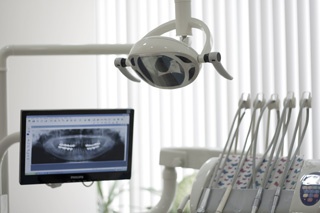Daily Dental Routine
Cleaning your tongue is an important part of your daily dental routine, just like flossing your teeth. Failing to clear away the plaque and detritus on your tongue is a good way to invite tooth decay and gum disease.
In case this is not enough to motivate you to get a proper tongue scraper, also consider the additional benefits that tongue scraping has for your dining experience. Just make sure you use proper tongue scraping and cleaning techniques. If you have trouble brushing your tongue, ask our Bellevue dentist about a tongue scraper.
Plaque and Bacteria on your Tongue
When you neglect to scrape your tongue, your taste buds aren’t able to do their job. You’re tasting your food through a thick layer of plaque and bacteria. Blocked taste buds also bring about false cravings and a reduced ability to enjoy your food. It is only by regularly cleaning your tongue that you can properly enjoy all of your favorite dishes and its flavors.
Overlake Dental in Bellevue
Make an appointment with us to learn more about proper tongue scraping and making it a part of your daily oral care routine.

 X-rays are one of the most important diagnostic tools at any dentist’s office. Getting your regular x-rays is the only way to be sure that you don’t have any tooth decay that needs to be taken care of.
X-rays are one of the most important diagnostic tools at any dentist’s office. Getting your regular x-rays is the only way to be sure that you don’t have any tooth decay that needs to be taken care of.